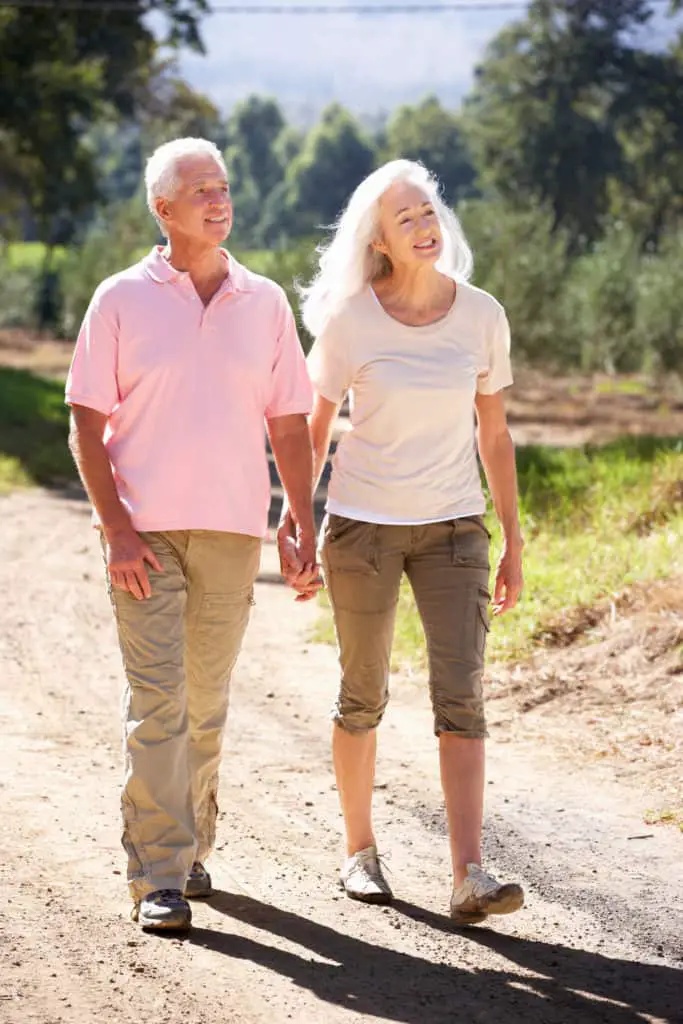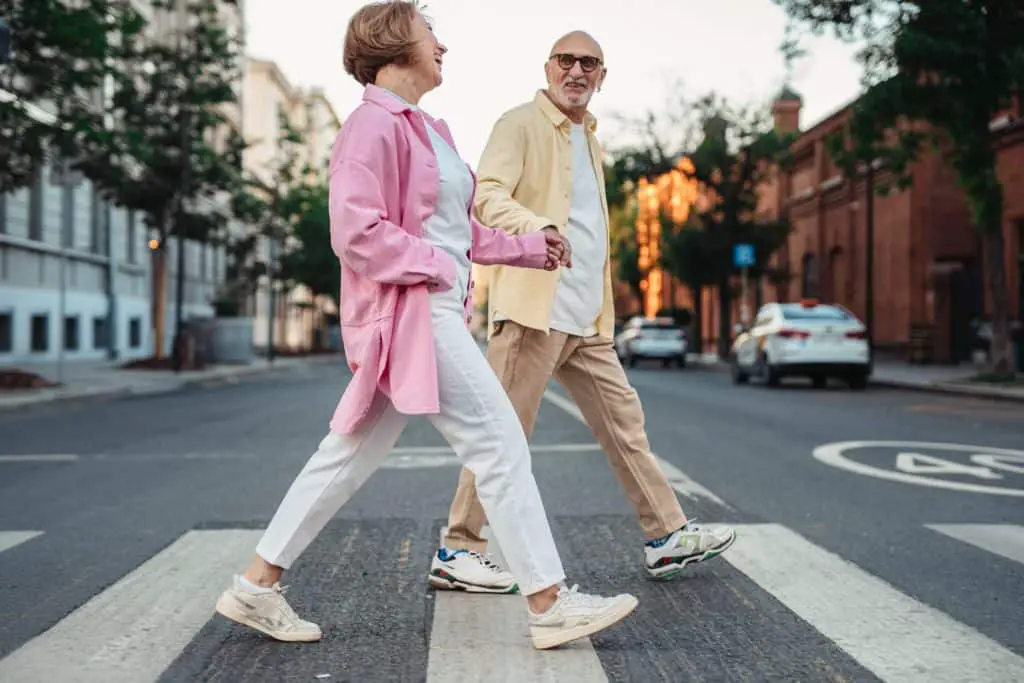People walk more slowly as they get older. It’s natural. There are a number of things seniors can’t do as quickly as they once did. But what does your walking speed say about you and is your walking speed telling you something?
Some folks slow down more than others. Studies show that, for people over 65, walking speed is a predictor of life expectancy, so much so that the medical profession think of it as a vital sign, right up there with measuring temperature, respiration, and pulse.
So what is a walking speed? Walking speed, also called gait speed, is the normal pace at which a person travels when walking naturally. The reason that it’s such a good indicator of the overall health of an older adult is that it’s a reflection of mobility.
Loss of mobility can lead to a downward spiral. Immobile people become less active, and as they become less active they lose strength, balance, and endurance. Declines in strength and balance cause them to become even less active, leading to further loss of strength and balance going forward. They become more at risk for falls and for chronic diseases like diabetes.
Also, less mobile seniors are more likely to become socially isolated, which carries a greater chance of depression and cognitive decline. Do I have your attention now?
What Is A Healthy Walking Pace?
The average adult walks between three and four miles per hour while maintaining a brisk pace. That doesn’t change much for man or woman until they reach their sixties. After that, the number can drop considerably.
This chart shows how walking speed, in miles per hour, changes from late middle age on. Men with their longer legs walk a little faster at every age.
| Age | Sex | Speed in MPH |
| 50 to 59 | Male | 3.2 |
| Female | 2.93 | |
| 60 to 69 | Male | 3.0 |
| Female | 2.77 | |
| 70 to 79 | Male | 2.82 |
| Female | 2.53 | |
| 80 to 89 | Male | 2.17 |
| Female | 2.10 |
Note that, for everyone, gait speed drops by almost a third between the 50s and the 80s. If your walking speed is close to average, your health and life expectancy may be close to average as well.

How Is Walking Speed Measured?
Some professionals calculate walking speed in an indoor clinical setting with a stopwatch. For example, there might be a four-meter walkway with a two-meter measuring segment in the middle. The walker takes the first meter to get up to speed, the middle two meters to get timed, and the last to slow down and stop. It’s an easy conversion to translate from meters per second to miles per hour.
This kind of measuring can be done as part of an overall medical assessment. But some might argue that it’s hard for a person to walk at their natural gait while being observed. Another measurement, one anyone can do, is just to go out for a walk in the neighborhood and time it. You can see how long it takes to walk a known distance. You can also use one of the various GPS-based phone apps to tell you your time, distance, and average speed.
What Your Walking Speed Says About You
What does it mean if your gait speed is slow? It’s important to remember that the correlation between walking speed and life expectancy is based on averages. Just because your pace is slow doesn’t mean you’re at risk for a shorter life. You should be more inclined to seek medical advice if you’ve been tracking your walking speed over time and it has slowed significantly.
There’s no evidence that slow walking causes a decrease in longevity. It’s more likely that some other factor might cause a slower gait. Or put another way, an older person who’s in poor health is expected to walk slower and not live as long.
People walk more slowly for a number of reasons. If there’s an injury that causes you to walk slower, you may have nothing to worry about, and your pace may pick up when you’ve healed. The same is true of an illness from which you can expect to recover. Some people walk more slowly because they lack energy or they have a condition such as arthritis that makes walking painful. And of course, there are always those who choose to walk slowly because they want to pause and smell the roses.
If My Walking Speed Is Slow – Then What?
If you’re walking slowly, it’s not necessarily because your health is failing. If you’re going through a period of low energy – and most of us have it now and then – you might time yourself again when you feel peppier. However, if your speed continues to lag, or if it drops off for a reason you can’t identify, make that medical appointment. It might be an early sign of a condition you’re unaware of.
The other thing you might want to initiate is to make an effort to walk faster. You might think deliberately picking up your speed is a form of rigging the numbers, but there’s more to it than that. If you can manage to move faster, walking more vigorously can actually improve your health.
Remember the downward spiral of mobility we mentioned earlier, where lack of activity causes loss of strength. Loss of strength leads to even less activity and even less strength. That can work the other way as well. Brisker walking can lead to having more energy, which in turn can encourage even more healthful walking.
This probably won’t help if you have a serious disease. Hence the importance of getting checked out. However, if your doctor says there’s nothing wrong with you beyond getting older and having a little less “juice,” more energetic walking might just improve your attitude, general health, and even longevity.
How To Walk Faster
- Mind your posture. Keep your chin up, your back straight, your eyes ahead, and your shoulders relaxed.
- Let your arms hang close to your body and swing naturally.
- Push off from your toes with each step.
- Keep your cadence up. That is, take quick steps.
- If there’s a limit to how long you can keep up a brisk pace, try intervals. Walk quickly for a few minutes then more slowly for the next interval.
Walking on two legs is one of humankind’s great gifts. Not many creatures can do it, and even fewer do it as well as we do. As we age, we may not walk quite as fast. However, walking can still be a pleasure as well as an indicator of our overall health.

